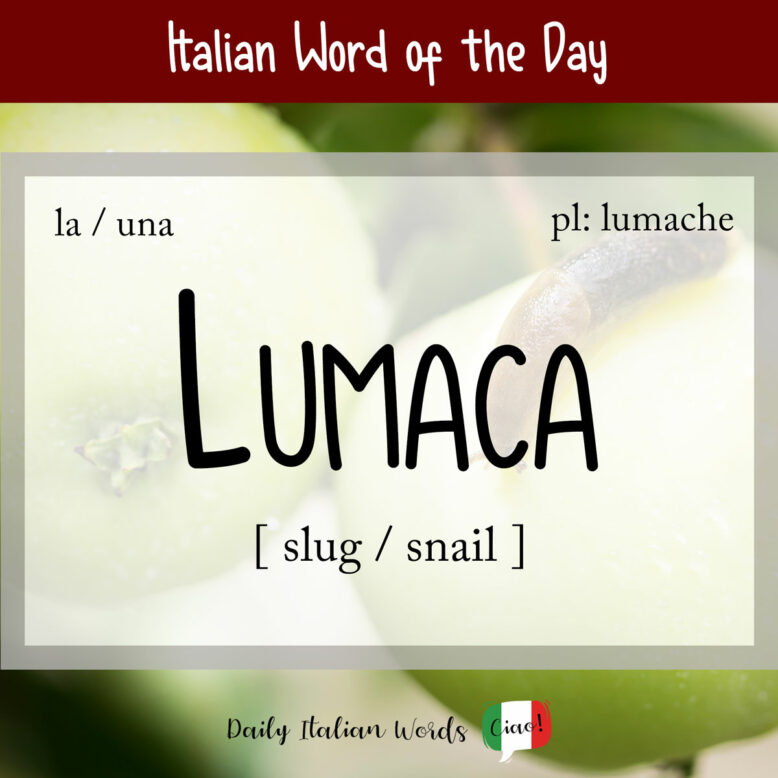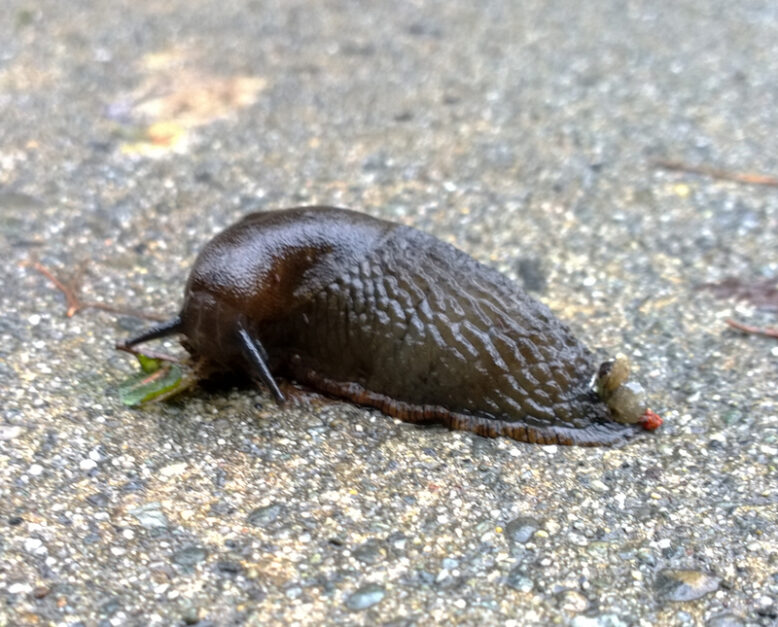Lumaca is the name in Italian for all terrestrial (and sometimes marine) pulmonate gastropods that are either devoid of a shell, or carry a shell that isn’t visible to the naked eye. The English word for these creatures is slug.

It is a feminine noun whose plural form is lumache, and takes the following definite and indefinite articles:
- la lumaca = the slug
- le lumache = the slugs
- una lumaca = a slug
- delle lumache = (some) slugs
La lumaca stava strisciando sulla foglia.
The slug was crawling on the leaf.

In everyday Italian, the snail (whose actual name is chiocciola) is also called a lumaca, despite having a well-structured shell. Although this meaning is incorrect from a purely taxonomic point of view, lumaca and chiocciola are generally considered synonyms, especially in figurative sentences in which the terms do not indicate the animal but, rather, a slow individual or object.
Sei lento come una lumaca!
You’re such a slowpoke!
(lit. You’re as slow as a snail!)

Stavamo camminando a passo di lumaca.
We were walking at a snail’s pace.
This rule also applies to dishes prepared using eatable snails (or escargot). For example, le lumache alla piemontese is a traditional dish from Piedmont prepared using snails cooked in an “aromatic mixture of butter, onions, broth, wine, bay leaves, and thyme, then served topped with pesto consisting of walnuts, chopped parsley, butter, anchovies, and garlic.” (Source: TasteAtlas)
In cases where it is necessary to draw a clear distinction between slugs and snails, Italians will often use the augmentative lumacone or limaccia to describe those without a shell.
Heather Broster is a graduate with honours in linguistics from the University of Western Ontario. She is an aspiring polyglot, proficient in English and Italian, as well as Japanese, Welsh, and French to varying degrees of fluency. Originally from Toronto, Heather has resided in various countries, notably Italy for a period of six years. Her primary focus lies in the fields of language acquisition, education, and bilingual instruction.


